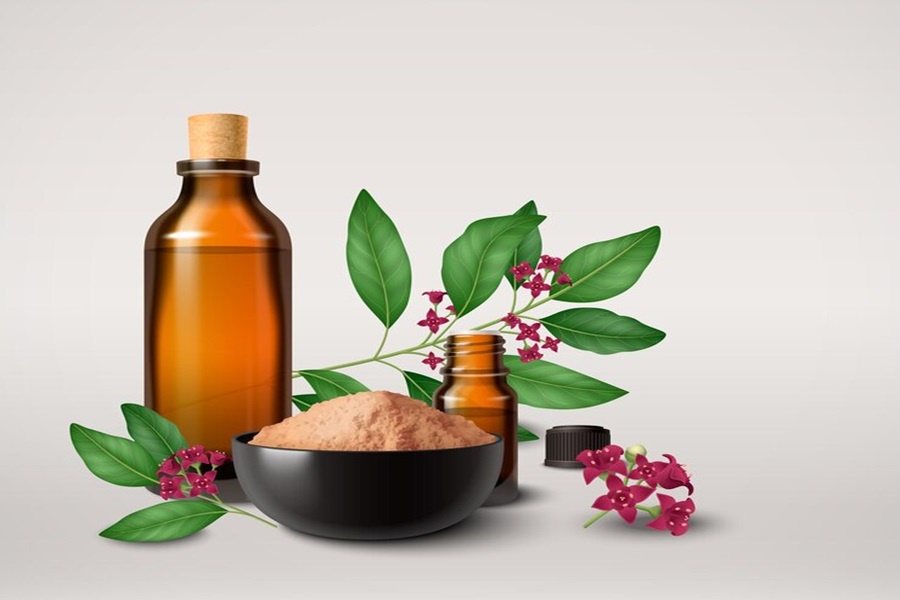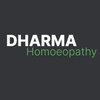Homeopathy is one gentle healing light among many in the wide field of healthcare. The foundation of this comprehensive medical system is praised for its delicate but effective methodology. It is a concept that initially emerged in the late 18th century by Samuel Hahnemann, the brilliant man who founded homeopathy. This fundamental idea, which may be summed up in the expression "like cures like," serves as the foundation of homeopathic medicine and distinguishes it from other systems of treatment.
The fundamental principle of homeopathy is the clever notion that a drug that may cause a certain symptom in a healthy person might, in the opposite situation, activate the body's natural healing processes to treat similar symptoms in a sick person. This distinctive treatment concept not only sets homeopathy apart but also encourages people to investigate deeper possibilities.
This unique treatment method is referred to as "homeopathic medicine". Natural remedies go through a thorough potentization process that includes dilution and succussion, a forceful shaking method that is thought to maximize the therapeutic effects while minimizing toxicity. This procedure, a nuanced dance between life and dilution, perfectly captures the spirit of homeopathic treatment. Homoeopathy, which embraces simplicity and efficacy, stimulates the body's life power to restore harmony and balance while addressing the underlying cause of symptoms. In contrast to traditional medicine, which frequently concentrates on symptom relief, homeopathy acknowledges the connection between a person's physical, emotional, and mental health.
History of homeopathic medicines in India
Homeopathy was first popularized in India in the early 1800s by German missionaries, and it soon became linked with the country's extensive history of complementary treatment. It has actively merged with traditional medical procedures throughout time, living side by side with them. The increasing adoption of homeopathy nowadays can be seen across a wide range of demographics. This is indicative of its efficacy and flexibility. The Indian government acknowledges homeopathy as a vital component of the country's healthcare system that emphasizes a holistic approach to treatment.
Evolution of Homeopathic Treatment in India
Homeopathy's journey in India has been impressive, starting as a niche approach and expanding to mainstream healthcare. Babu Rajendra Lal Dutta, hailed as the Father of Indian Homeopathy, played a pivotal role in the 19th century. Foreign influences, including French homeopath Thiennette Berigny and Viennese physician Dr. L Salzar, contributed to the growth of homeopathy in India. Today, it seamlessly integrates into the healthcare landscape, offering a compelling alternative to conventional medicine.
The Holistic Benefits of Homeopathic Medicines
Within complementary and alternative medicine, homeopathy is a unique and interestingly mild therapeutic approach. These treatments, which frequently come in the shape of pills, sugar pellets, ointments, or gels, use diluted ingredients to boost the body's healing processes. Although there is disagreement on the scientific support, early research suggests that homeopathy may be beneficial for a variety of ailments.
Diverse Forms of Homeopathic Medicines
Homeopathic medicines come in various forms, commonly consisting of sugar pellets. However, they also extend to tablets, ointments, and gels. This diversity in delivery methods allows for flexibility and adaptability, catering to individual preferences and specific medical needs.
Exploring the Therapeutic Potential of Homeopathic Medicines
Although robust scientific evidence may be currently lacking, homeopathy has shown promise in addressing a wide range of medical conditions. Preliminary studies indicate potential benefits in treating:
- Allergies
- Arthritis
- Asthma
- Chronic Fatigue Syndrome
- Colds and Flu
- Cough
- Diarrhea
- Fibromyalgia
- Menopause Symptoms
- Muscle Aches
- Otitis Media (Ear Infection)
- Pain
- Stress
- Teething
The Single Remedy Principle in Homeopathy
Homoeopathy, a system valued for its personalized approach, supports the idea of a single solution. This idea highlights how important it is to choose a course of therapy that not only takes care of an illness's physical symptoms but also explores its emotional and mental components. By customizing the treatment to address every aspect of a patient's illness, practitioners may closely monitor the patient's reaction and obtain important insights into the intricate structures involved in the body's healing processes.
Homeopathy's Minimum Dose Principle
Homeopathy's foundational idea of the smallest dose is a skillful approach based on potentization. This method, which involves a stringent succession of dilutions and vigorous shaking, is said to maximize the substance's therapeutic qualities while reducing any possible toxicity. Homeopathic treatments are frequently arranged according to several dilution scales, indicated by symbols like C (centesimal dilution) and X or D (decimal dilution). Homeopathy suggests that even though the resultant solutions appear to contain very little of the original material, they have a significant impact on the body's complex healing mechanisms.
The core of homeopathic treatment is enclosed by the principles of the single remedy and the smallest dose. Homeopathy aims for accuracy in healing by customizing medicines for each patient and using small, powerful dosages of each. This sophisticated method recognizes the connections between mental, emotional, and physical health, offering a holistic worldview that never fails to captivate and interest medical professionals and patients alike.
How Homeopathic Medicines Are Utilized
Within the field of homeopathy, remedies are carefully customized to the unique symptoms of every single patient, representing a highly personalized method of healing. This customized approach has proven successful in treating a wide range of illnesses and ailments, illustrating the adaptability of homeopathic medicines.
- Allergies: Allium cepa is a possible treatment for those who suffer from allergies. It targets watery eyes without burning, itching, or stinging sensations together with a runny nose that irritates the upper lip and nostrils.
- Cough and Cold: One very effective homeopathic treatment for symptoms of sneezing, runny, watery nose, and burning in the eyes, nose, and throat is the Arsenicum album. In a similar vein, Euphrasia officinalis helps those with burning tears, a non-itchy runny nose, and a chronic cough.
- Headaches & Migraines: Natrum muriaticum is a new addition to the homeopathic arsenal for treating headaches that are accompanied by dark circles beneath the eyes. It offers a customized method of relieving pain.
The core of Right Homeopathic Medicine Consultation
In homeopathy, the key to effective therapy is a detailed and personalized consultation. A thorough examination of each patient's symptoms is essential to selecting a homeopathic treatment that will work best for their particular health needs. The focus on personalized consultation highlights the comprehensive aspect of homeopathy, promoting a focused and efficient method of treatment.
Empowering Wellness Through Dharma Homoeopathy’s Personalized Care
Our aim at Dharma Homoeopathy is very clear: we want to use the gentle yet potent principles of homeopathy to enable people to take charge of their health and well-being. Our devoted group of skilled homeopaths is committed to providing sincere, patient-centered consultations that are tailored to your particular medical need.
What distinguishes us is our dedication to providing affordable homeopathic medications. Our drugs constantly provide the best results since they are designed to be non-addictive, non-reliant, and devoid of adverse effects. Our approach to wellness is safe and non-invasive, with a focus on your health journey and providing sincere consultations that have a meaningful impact.
It's simple to make an appointment; just visit our website or give us a call. Then, start living a better, more balanced life.
Frequently Asked Questions (FAQs)
What is homeopathy, and how does it work?
Homeopathy is a natural healing system based on the principle of "like cures like." It stimulates the body's vital force to restore balance and promote self-healing.
Is homeopathy safe?
Yes, homeopathy is considered safe with minimal side effects. It's non-toxic, non-addictive, and suitable for all age groups.
How can I book a consultation?
Booking is easy! You can schedule your appointment conveniently through our website or by giving us a call.
Are homeopathic medicines budget-friendly?
Absolutely! We prioritize affordability, offering budget-friendly medicines without compromising quality.
Can homeopathy be used alongside other treatments?
Yes, homeopathy can complement other treatments. It's essential to inform your healthcare providers about all therapies you're undergoing.
Will I get addicted to homeopathic medicines?
No, homeopathic medicines are non-addictive. They work by stimulating the body's healing mechanisms without creating dependency.
Book an Appointment now: https://www.dharmahomoeo.com/book-appointment/
Source: https://bresdel.com/blogs/473985/Exploring-Benefits-of-Homeopathic-Medicine


No comments yet